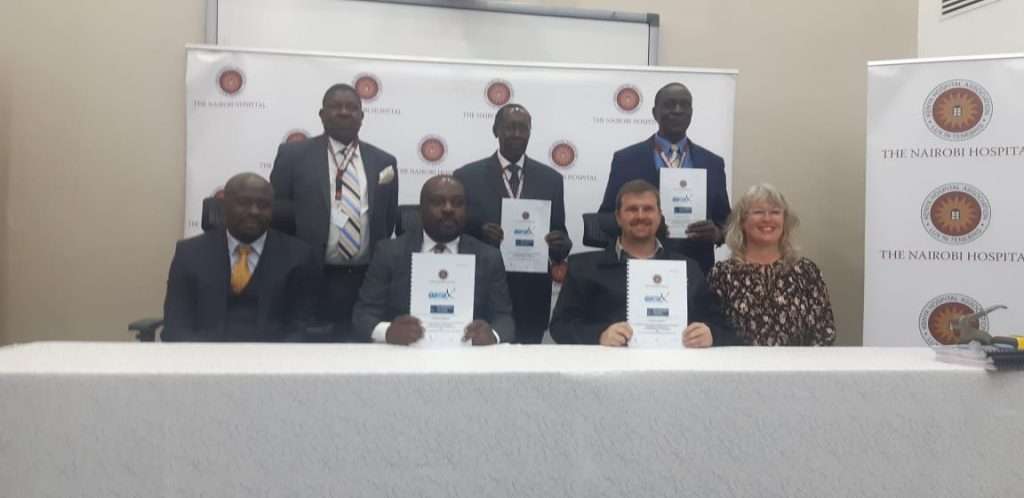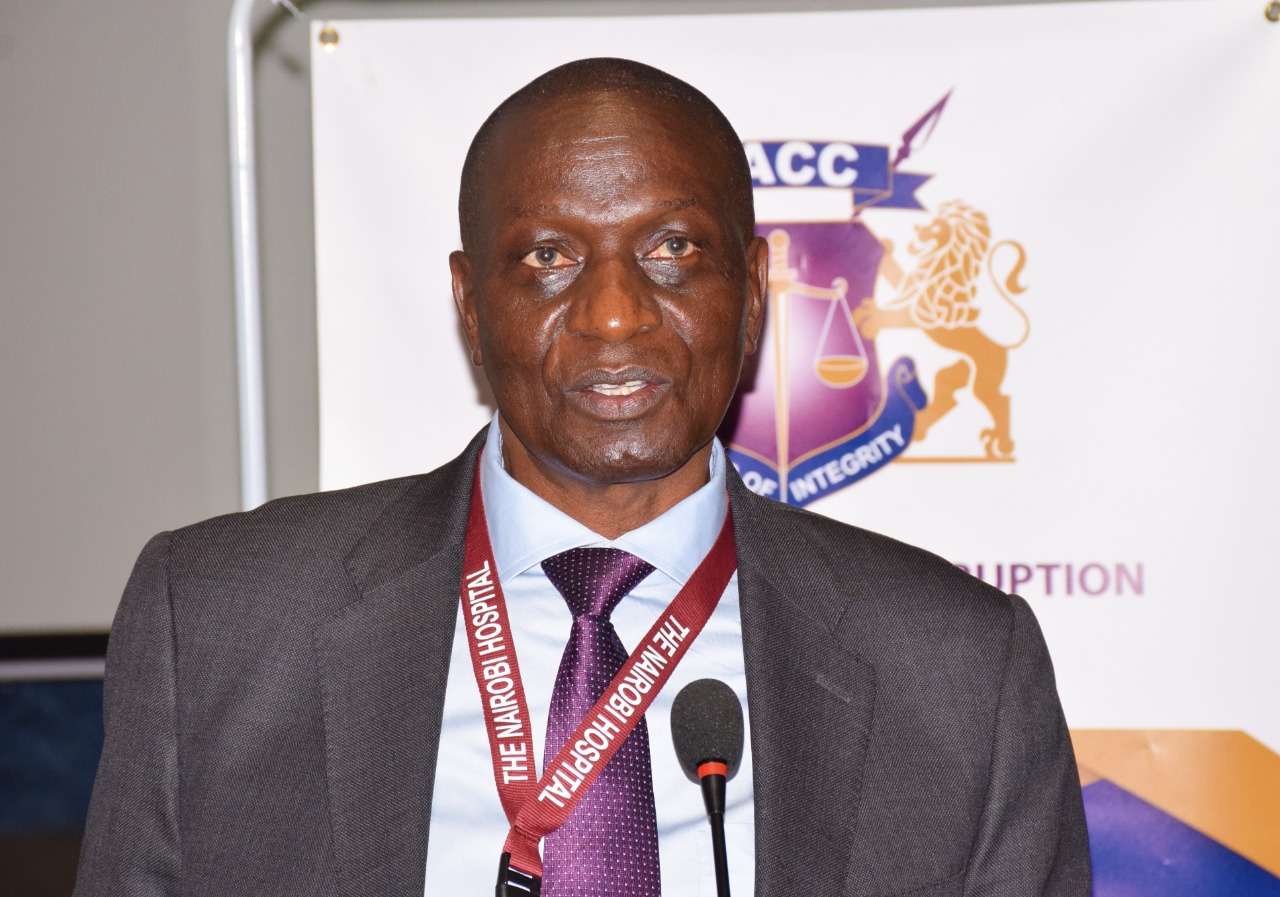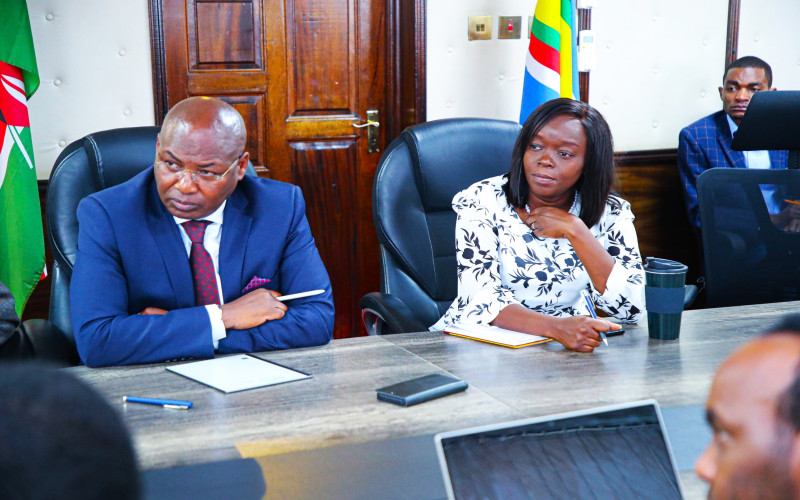In October 2023, the system integrator submitted to the Nairobi hospital an invoice of USD 1,594,948 for the services already rendered from the date of the contract signing. The hospital, however, declined to acknowledge receipt or honour the invoice. The System Integrator has now come to find out that after the AGM, a section of the new board is out to cancel the contract and give it to a company allied to the CEO, who is past retirement age
By The Weekly Vision Team
The management of Nairobi Hospital has come under heavy criticism from a South African company for allegedly mismanaging the facility. The company says that the facility, being a top-class hospital in the East and Central Africa region, is expected to have in place robust corporate governance structures to govern and manage the institution both at the board and management levels. However, the reality on the ground and the practice in the institution are in total contrast to the expectations .
In April 2022, the hospital is said to have advertised in the local dailies for a consultancy for the supply, implementation, maintenance, and support of enterprise resource planning (ERP) and hospital management information systems (HMIS). After a thorough procurement process was undertaken, including due diligence and site visits, a joint venture (JV) of two companies—a South African company and a Kenyan company—won the tender.

The winning JV was awarded the contract in June 2023 at a contract sum of USD 5,643,334 for five (5) years, and the contract was signed in August 2023. The JV fulfilled all the required conditions as per the contract, including submitting a Performance Bank Guarantee of 5% of the contract value within the time specified by the hospital.
The JV, which was referred to as “System Integrator” in the contract, immediately commenced the execution of its mandate in the project according to the work plan and in agreement with the hospital Project Implementation Team (PIT) requirements. The system integrator was given an office in the hospital equipped with WiFi, a printer, and a shredder. In addition, the system integrator was given parking and identification badges to enable its staff to access various parts of the hospital in the course of carrying out their work.
When the Kenya Hospital Association (KHA) conducted the Annual General Meeting (AGM) in September 2023, there was a change in the board of directors, including the replacement of the chairperson. Immediately after the AGM, the system integrator started to experience hostility, interference, resistance, non-communication, and sabotage from the new board and management. There were allegations from a section of the new board that the system integrator had failed to meet the required conditions in the contract, which they had signed. To the surprise of the system integrator, the board members who were making the allegations were from the same ethnic community as the hospital’s chairperson, chief executive officer, and company secretary, supported by other board members who had allegedly been compromised.
They claimed that the system integrator failed to submit a performance bank guarantee as specified in the contract. The guarantee was indeed sent to the hospital and addressed to the CEO. The bank attempted several times to contact the CEO, but he declined to collect the original copy. The system integrator made the effort to collect the original bank guarantee from the bank and deliver it to the CEO’s office. Unfortunately, the CEO instructed the secretary not to accept its delivery.
In October 2023, the system integrator submitted to the Nairobi hospital an invoice of USD 1,594,948 for the services already rendered from the date of the contract signing. The hospital, however, declined to acknowledge receipt or honour the invoice. The System Integrator has now come to find out that after the AGM, a section of the new board is out to cancel the contract and give it to a company allied to the CEO, who is past retirement age. The CEO’s contract expired in December 2023 but was renewed under mysterious circumstances against the Nairobi hospital’s human resource code of regulations to fulfil his personal interest in the contract.
On the other hand, the CEO and section of board members are happy to maintain the status quo with the current hospital’s ICT system, which has serious financial leakages for reasons known to them. Furthermore, it is alleged that the CEO has never gone on leave for the last three (3) years when in office, which leaves many questions about the corporate governance levels of the hospital.
The hospital has gone ahead to initiate a direct tendering process for selected companies by writing to companies like Microsoft, which supplied the joint venture with the ERP in the current HMIS-ERP project running contract. This is in complete breach of the hospital’s procurement rules, where an open tender is required for any goods or services worth more than Ks. 5 million. Furthermore, it has to be passed by the full board as opposed to a section of board members.
Historically, the hospital has been known to have serious governance issues, which are in the public domain. Recently, the US government, under the U.S. Trade and Development Agency (USTDA), granted the Nairobi hospital USD 1.1 million to undertake a feasibility study to expand and improve healthcare access in Kenya. The study was to support the hospital’s intent to establish five medical centres across Kenya, digitise its operations, and expand cancer treatment services at the hospital. The US government did this on the premise that the governance issues in the hospital had been resolved.
It is apparent now that the governance at the hospital is currently at its lowest since the changes in the board in September 2023, with a lot of questions regarding processes of revenue collection, recurrent and capital expenditures, and asset management. There are several unresolved issues surrounding hospital operations, staff welfare, and safety, including the death of the former Finance Director, who was murdered under mysterious circumstances.
The current situation at the Nairobi hospital therefore calls for the trustees, shareholders, and all stakeholders to urgently step in and seriously interrogate the management and operations of the hospital under the current board and the CEO, whose contract was recently renewed under dubious circumstances.





